Greenland ice melting in extra-warm Arctic season
Apologies for a lack of new posts over the last week. The ice blogger was offline “up north”, not quite in the Arctic, but on the Orkney isles, where pioneering companies are testing devices to turn the power of the sea into climate-friendly electricity. But more about that at a later stage.
The worrying news about Greenland and the Arctic has jumped to the top of the ice blog agenda. NASA images of the Greenland ice sheet have indicated that for a few days this month almost the entire surface of the “ice island” was melting. A giant iceberg also broke off the Petermann Glacier in Greenland.
This is part of an overall development in the Arctic, where the summer has been unusually warm. The US National Snow and Ice Data Center (NSIDC) says a large portion of the sea route between Western Europe and the Pacific has as little ice as it would normally have at the END of the summer melt.
This type of widespread surface melting is not unprecedented, according to the NSIDC.It might happen around every 150 years in Greenland. But the difference is that previous events of this sort happened around 7,000 years ago when the sun was tilted in such a way that it sent more sunshine to extreme northern latitudes. This time, there is no solar tilt to explain the melt.
Mark Serreze, director and senior research scientist at the NSIDC says Arctic sea ice is also at the extreme low end of the satellite record for this time on year and could be on track to equal the 2007 record, when the Arctic ice reached its smallest size in the satellite record. The sea ice is in a “sorry state”, he says, with holes appearing in satellite images much like a Swiss cheese. What next?
Fresh wind for the climate?
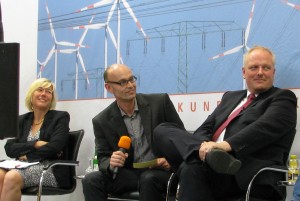
My colleague Gero Rueter chairing the panel, here with Syliva Pilarsky-Grosch, vice-president of the German Bundesverband WindEnergie and Ulrich Kelber, member of the Bundestag and SPD expert on environment and energy issues.
The World Wind Energy Conference started in Bonn today, focusing attention on the role of decentralized wind power. It’s an interesting topic at this particular time with a big debate going on here in Germany over the role large offshore wind parks should play in securing a renewable energy supply. At a kick-off panel discussion organised last night by the Friedrich Ebert Foundation and the World Wind Energy Association, one of the main conference organisers, the speakers provided plenty of arguments in favour of smaller, decentralized systems with different ownership models, from citizens’ groups to local authorities, rather than large offshore parks run by big industry. At today’s official opening ceremony in the Bonn Conference Centre, a federal government representative, Secretary of State in the Environment Ministry Jürgen Becker, made the case for having both. The main problem with the big offshore parks at the moment is how to successfully connect them to the grid and get the power from Germany’s North Sea coast to where it’s needed farther south. Interesting discussions ahead. There are large delegations from China and Canada attending the conference, countries with a key interest in wind power. I bumped into a colleague from Japan this morning, who said he was covering the conference because of the urgent need to develop renewables in Japan after Fukushima.
Greenpeace on the streets to save Arctic
Greenpeace have launched a “Save the Arctic” campaign to stop oil drilling in the Arctic.
Activists have been out on the streets around the globe today – including in Bonn! I dropped by to see what was going on and record some interviews for Living Planet, our radio magazine. It was great to see the Arctic featuring in Bad Godesberg centre on a sunny morning with the shoppers out and about. I talked to Ulrike and Lukas, two different generations, both out to tell people about the dangers of oil drilling in the pristine Arctic environment. Lukas is 20 and really into environment protection. Tune in this coming Thursday evening to hear Lukas and Ulrike talk about their work. They – and all the other Greenpeace volunteers out around the planet – are collecting signatures for a petition to protect the Arctic. The signatures will be put together into a sealed container and deposited near the North Pole – where the Russian submarine put a flag a few years ago.
The Arctic doesn’t belong to one country, is the message – we need to protect it for all of us. Good work guys, thanks for spending your free time doing this and I hope you got lots more attention at your stand!
More Arctic stories:
China’s Arctic Ambitions spark concern
Energy giants cooperate for Arctic resources
Scientists raise Greenland climate threat
Greenpeace helps scientists research Arctic ocean
Rio 20 years on – and where’s the climate now?
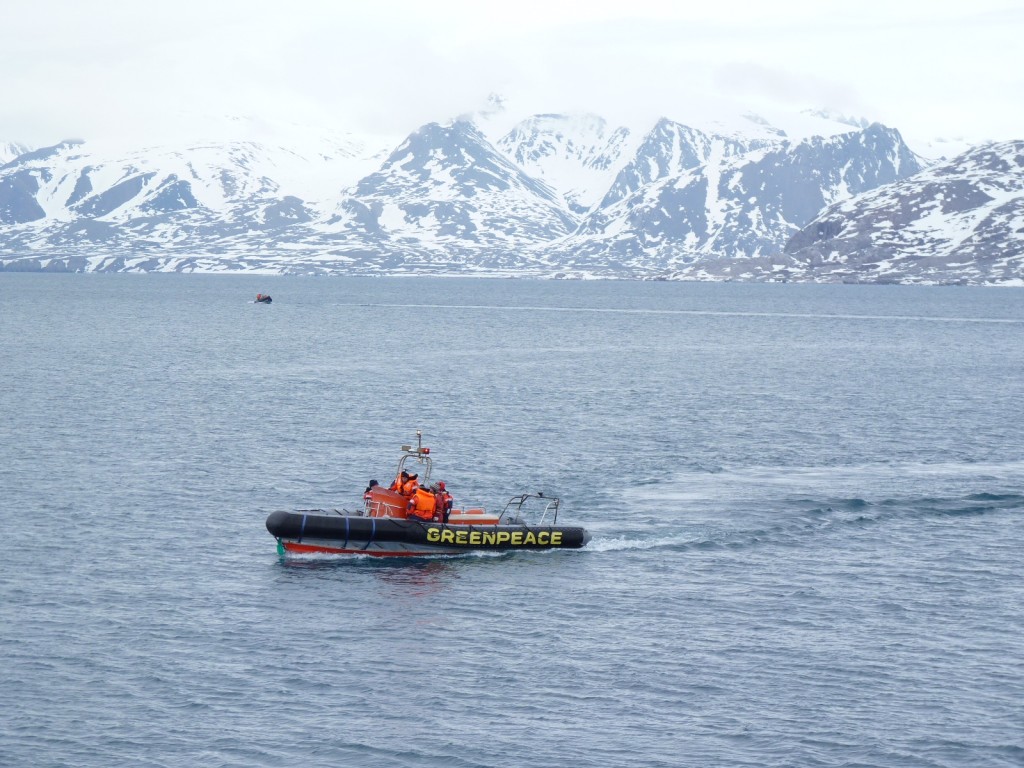
Greenpeace is regularly out and about in the Arctic, here off Spitzbergen. No wonder the activists are disappointed with Rio so far
I’ve just been working on an article on the record high CO2 concentration measured in Arctic Alaska in May. And it really brings it home to me that since the famous Earth summit in Rio in 1992 set the alarm bells ringing and the wheels in motion to tackle climate change – we have not really achieved very much. Now I am generally an optimistic person, but given that CO2 emissions were up again in 2011, the UN climate secretariat is still struggling to get countries on board for a Kyoto follow-up agreement, the USA still resists any binding targets and China and the other emerging countries are understandably unwilling to compromise their development to start solving a problem we industrialised countries caused – it is hard to work up enthusiasm for the Rio meeting. Copenhagen showed us all what can come of having expectations that are too high. Basically, the draft declaration from the meeting (sometimes I think it makes a bit of a farce of the huge meetings themselves that the draft has to be ready beforehand, but I understand the political and economic realities behind this) has already polarised response: on the one hand, the politicians who (have to?) say they would have liked more but we are lucky to get even this meagre document, on the other the ngos and activists who have expressed huge disappointment or even disgust. Let me give you a short quote from Kumi Naidoo’s blog, he’s executive director of Greenpeace International:
“The Future we Want is nowhere to be found in the already agreed Rio+20 outcome text, which world leaders are now rubber stamping and Greenwashing. The spin cycle has begun. At the same time some 20,000 people marched on the streets of Rio in protest with an air of despair but clinging to hope.”
Let’s keep hoping…
Renewables Grid: Protect the climate at the cost of the environment?
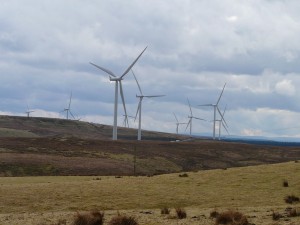
Renewables and countryside - conflict unavoidable? (I took this pic at Whitelee windfarm in Scotland)
The transition to renewable energy here in Germany has sparked off a discussion about the electricity grid. A similar discussion has been going on in the UK. One of the challenges is to get power from areas where it is produced – wind or marine energy from the coast, for instance – to the industrial and population centres, where it’s needed most. When this means new power-lines in areas enjoying nature protection, for instance habitats for particular plants and animals, or even just areas of great natural beauty, there is bound to be conflict. Germany’s federal economics minister and leader of the German Liberal Party the FDP Philip Rösler made the headlines this morning calling for environmental protection legislation to be temporarily shelved in some cases to make way for a quicker extension of the grid. I think this is a conflict we are going to face more and more often as the effects of climate change become more evident and the need to switch to renewables ever more urgent. Would it be too cynical to suggest some industries might want to put off the transition and benefit from a relaxation of environmental standards as the politicians become more desperate to meet emissions requirements? Perhaps. The Economics Minister is certainly laying himself open to criticism by conservationists who accuse him of taking advantage of the climate problem to help industry get round environment legislation. The German ngo NABU says Minister Rösler risks losing public support for the energy transition by suggesting this sort of course. They also stress that there is a “European Grid Declaration on Electricity Network Development and Nature Conservation in Europe“, signed by grid operators and ngos from across the continent.
Interesting times ahead.



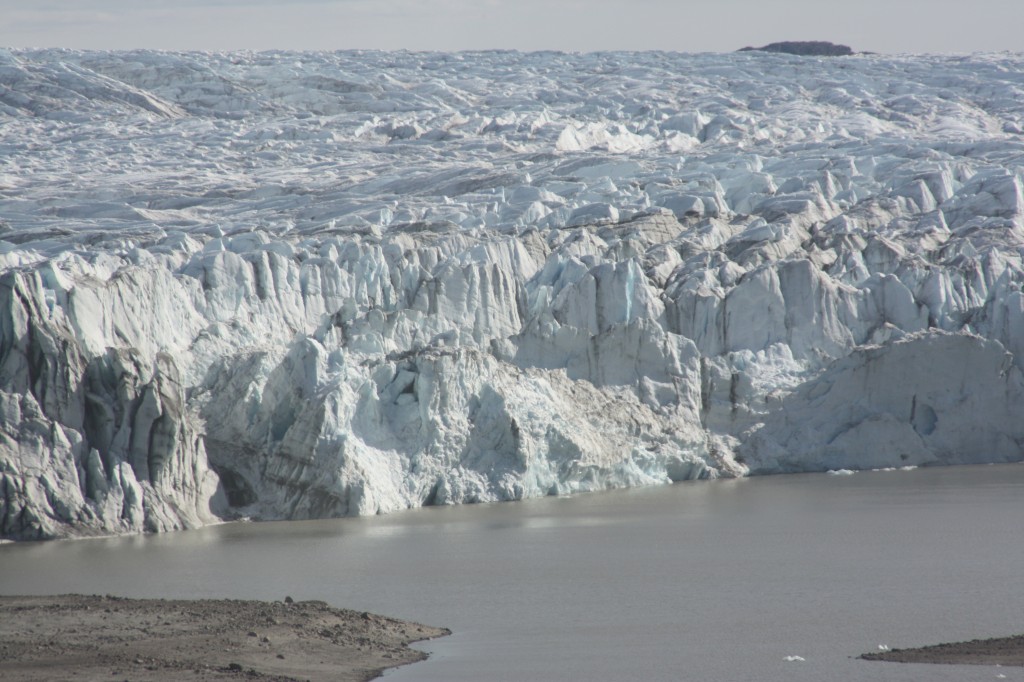

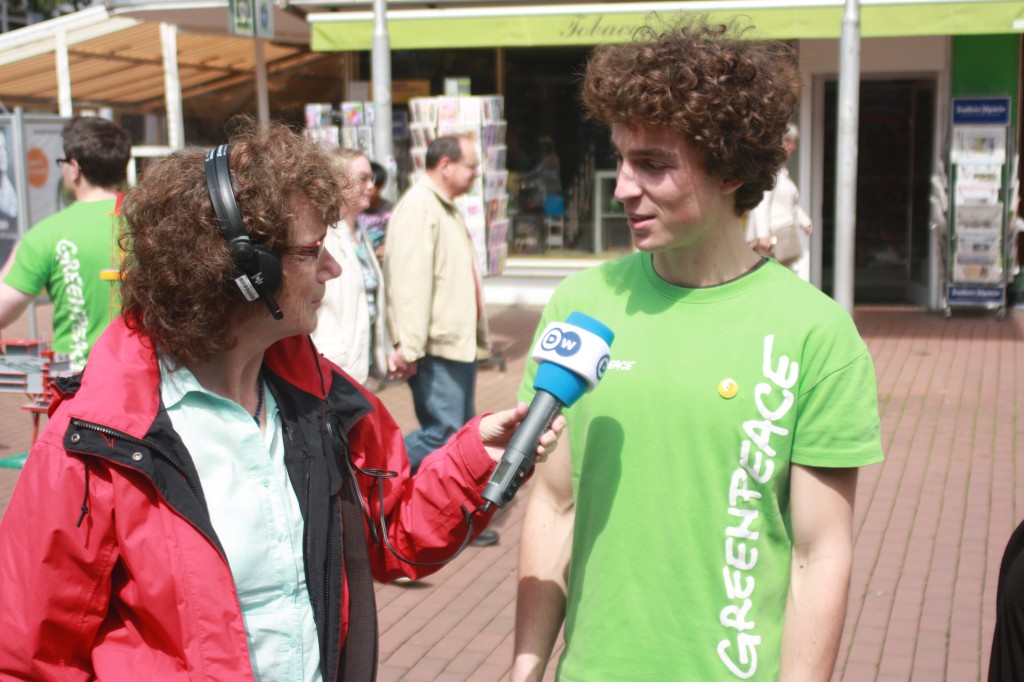
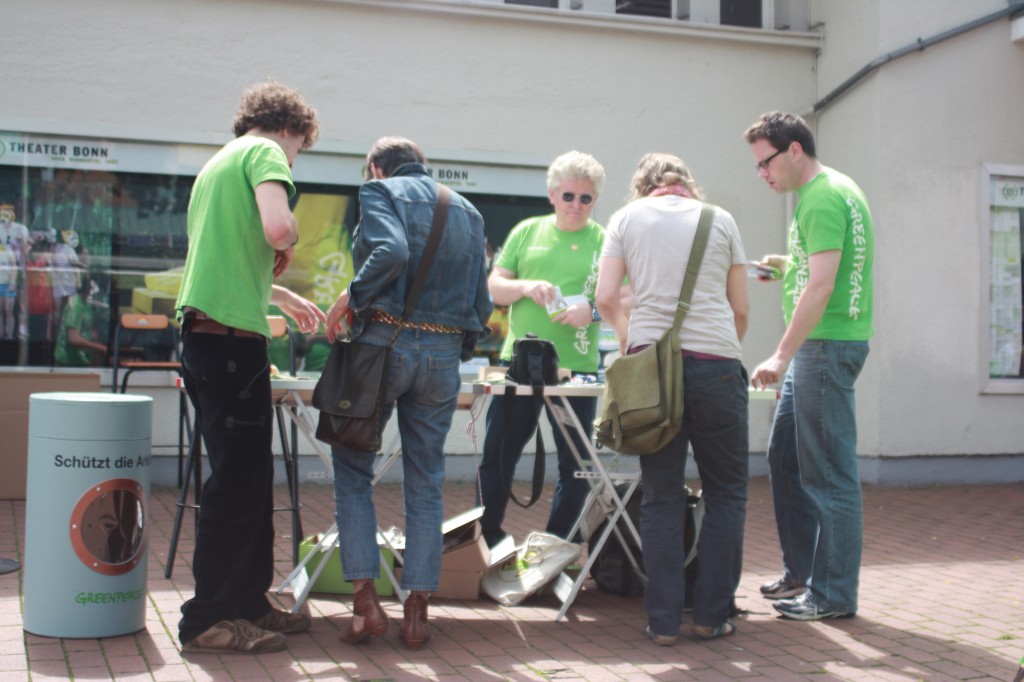
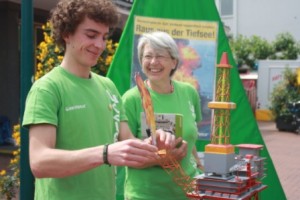
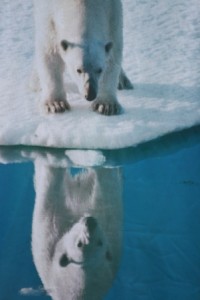
















Feedback